Grepen Center Update
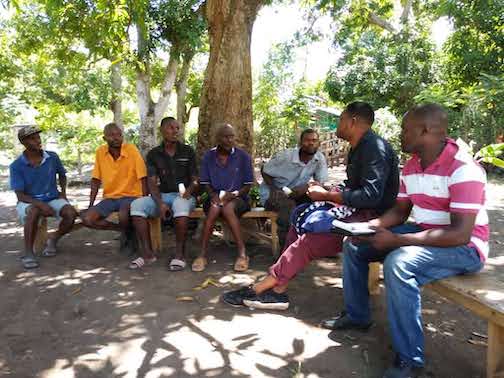
Quixote Center’s work in Haiti prioritizes systemic change. Our theory of change has three aspects:
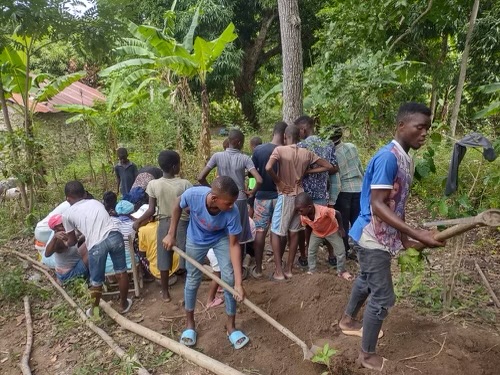
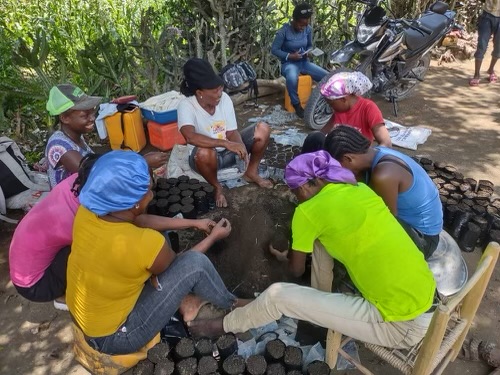
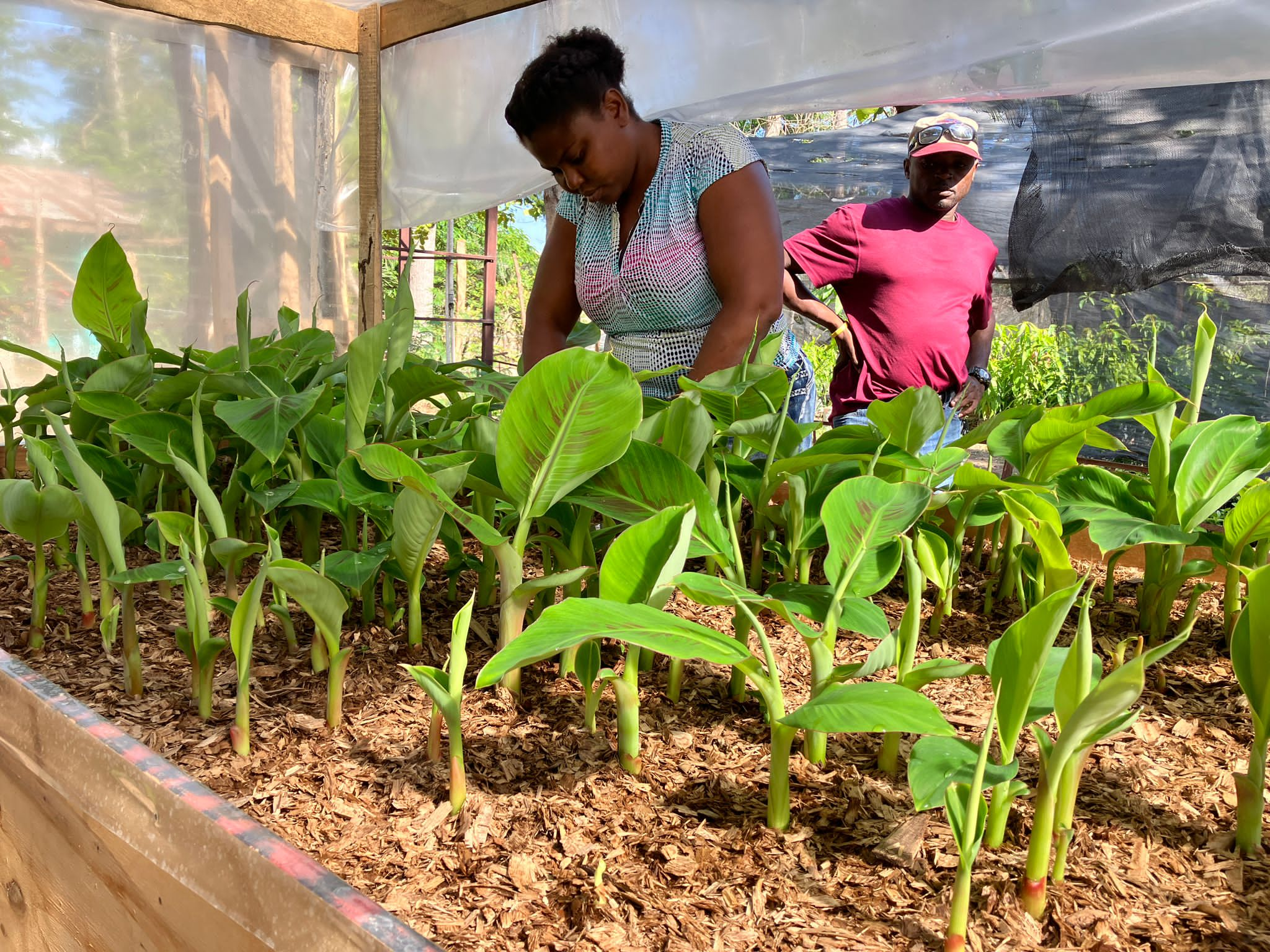
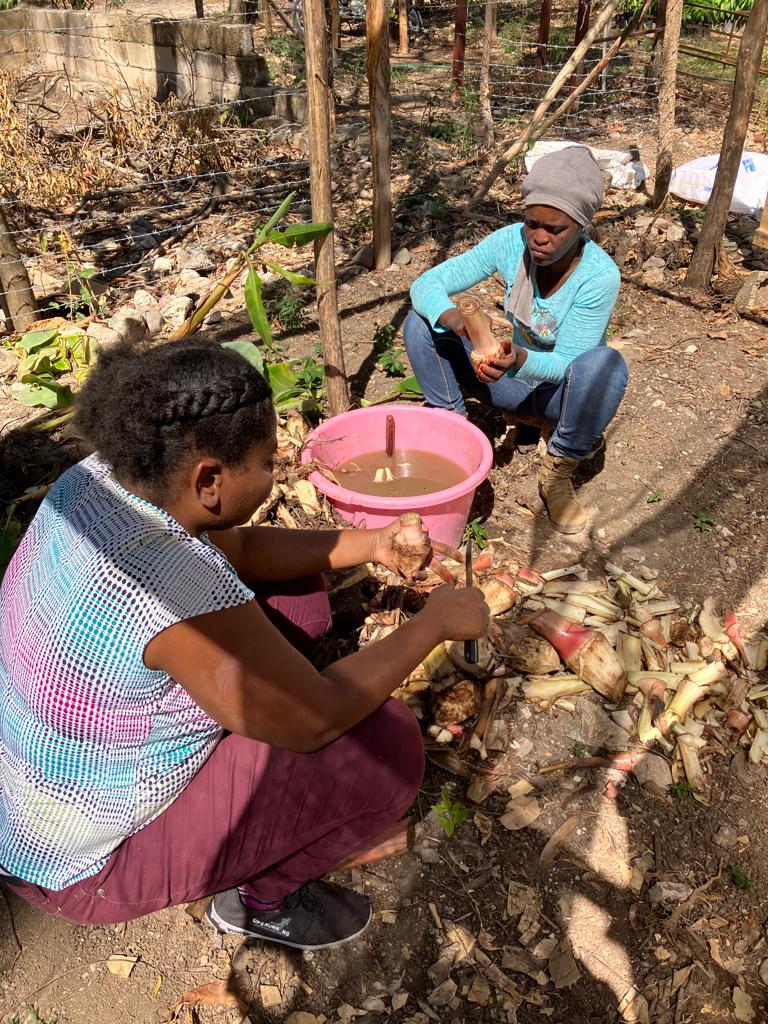
Quixote Center initially launched Haiti Reborn in 1991 during a period of renewal in Haiti, following the election of Aristide and the rise of Lavalas, a popular movement for democratic reform. The coup that ousted Aristide later that year led us to focus our efforts on speaking out against United States intervention in Haiti. US foreign policy as well as development aid still has enormous influence over Haiti and its future. US NGOs and churches also funnel significant funds into Haiti, leading many Haitians to dub their country “the republic of NGOs.”
The Quixote Center partners with Haitian organizations to support smallholder farmers to build sustainable livelihoods from agriculture and reforestation. The Jean Marie Vincent Formation Center located in Grepen, Haiti, is our primary partner in the north while in the south DCCH, the Christian Community Development in Haiti is our main partner in Gouin, Les Cayes.
There is a major humanitarian crisis that is worsening the medical, economic, housing, security and other social aspects of life in Gros Morne. The Quixote Center is working with our local partners to support vulnerable familiesin through our Emergency Campaign. You can read more and support the campaign HERE.
The Jean Marie Vincent Formation Center houses a tree nursery, a model instructional garden and multiple classrooms. These resources help farmers increase the yields of their farms, find new markets for their products, and gain access to the seeds and technology they need to succeed. The agronomy team from the JMV Center travel throughout the Arrondissement of Gros Morne to deliver workshops organized with a network of small farm associations, the Catholic Church’s Caritas network, and local schools. With our support, the JMV Center also maintains the Tet Mon model forest, a reforestation project that is the only one of its kind in the region. The JMV team holds formation sessions on reforestation and tree maintenance for local leaders, schoolchildren, and agronomy students.
The Social and Economic Recovery Program was launched in January 2025 as a scalable and replicable pilot project working with 100 rural families reaching up to 1000 people. These participating families are the protagonists of this program that aims to improve their income and food security while building resilience and eliminating dependence on outside assistance. Based on a 2023 community study, the project provides targeted investments in agroecological training, animal care, women empowerment through microloans and small business ventures. After collecting baseline data, the program will be tracking progress with the goal to increase household income by 20%, school attendance by 60%, crop yields by 60% and trade diversification among women.
Read the most recent report from our partners HERE.

Although pandemic precautions have not permitted Quixote Center staff to visit our Haitian counterparts this year, we have kept in regular touch with our partners via virtual meetings twice a month. Because of those close connections, we were able to broadcast the need for increasing deposits in the seed bank and many of you truly delivered to meet this need. We received the report below yesterday and wanted to share some highlights with you.
Several years ago a breed of weevil began infesting sweet potato crops in the area around Gros Morne, ruining many harvests. In response, the team at the Jean Marie Vincent Formation Center went to work developing a weevil resistance strain of sweet potatoes, and have been introducing this to farmers. Below are some photos from a project site in Perou, a satellite nursery for sweet potatoes, Aneus (red shirt) and Teligene (white shirt) check on sweet potatoes.
On 11 August, 2020, the hen house celebrated the one-year anniversary of the arrival of the first 1,000 hens. The hen house provides low-cost eggs to community groups for resale in the local market. The Quixote Center helped fund the solar powered water pump for the hen house. The hen house is committed to using feed that is 100% grown locally. This is a goal that is close to being met.
The notorious paramilitaries of the past, the Tonton Macoute and FRAPH may be gone today, but the people of Haiti are once again under the threat of the presence of armed groups acting with impunity. The use of armed gangs by political actors in Haiti (and many other places, including the U.S.) to “keep order” is hardly a new phenomenon. However, over the last several years, as protests against the PHTK government have grown, these gangs have been mobilized in what seems a coordinated fashion. They are heavily armed, and have engaged in multiple attacks on communities.
On June 23, the United States’ Immigration and Customs Enforcement deported Emmanuel “Toto” Constant to Haiti. Constant was arrested as he arrived in Port-au-Prince, based on a 2000 conviction for the massacre of political opponents at Raboteau, Haiti. In 1994, at the time of the massacre, Constant was head of a paramilitary organization called the Front for the Advancement and Progress of Haiti (FRAPH), which is known to have engaged in widespread human rights violations, including murder, rape, and torture. When U.S.
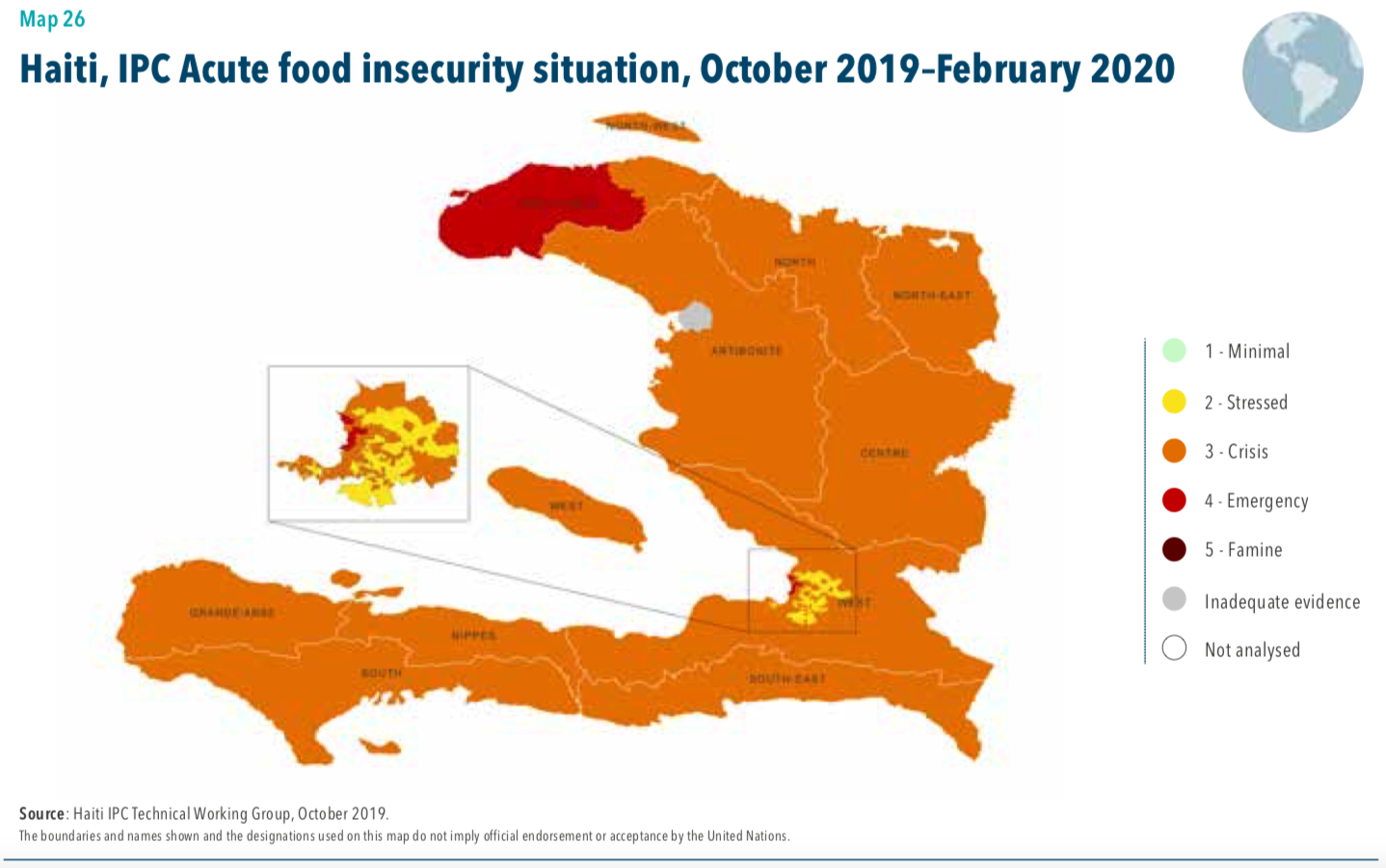
The large scale demonstrations and roadblocks that had shut Haiti down for several months last fall are over — for now. Parliament is no longer in session. Absent elections, there are not enough members for a quorum. As a result, President Moïse is ruling by decree. He shows no signs of resigning, and continues to hold out a process of dialogue with opposition political leaders as a way out of the crisis. Negotiations have taken place, but continue to be stalled on the question of Moïse’s tenure in office.